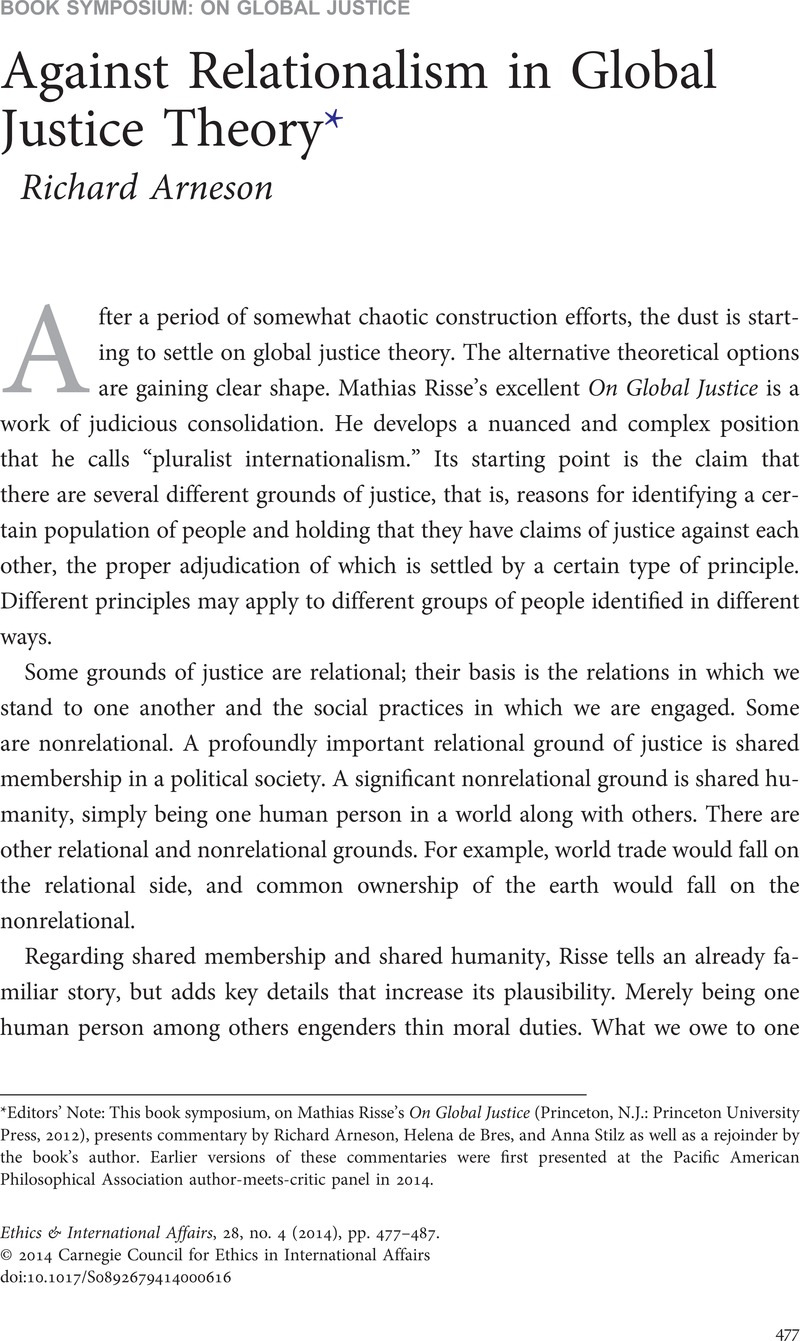Article contents
Against Relationalism in Global Justice Theory*
Published online by Cambridge University Press: 12 December 2014
Abstract

- Type
- Book Symposium: On Global Justice
- Information
- Copyright
- Copyright © Carnegie Council for Ethics in International Affairs 2014
Footnotes
Editors' Note: This book symposium, on Mathias Risse's On Global Justice (Princeton, N.J.: Princeton University Press, 2012), presents commentary by Richard Arneson, Helena de Bres, and Anna Stilz as well as a rejoinder by the book's author. Earlier versions of these commentaries were first presented at the Pacific American Philosophical Association author-meets-critic panel in 2014.
References
NOTES
1 In passing, I'll simply record a dissent from the opinion that strong cosmopolitanism as just described lacks all plausibility. Multilevel act consquentialism can employ strategies made familiar to us by R. M. Hare and Peter Railton and others. Of course there are special relationships and special-tie duties, but these can be interpreted as duties in the domain of social norms linked to social roles, not moral duties. An act consequentialist can hold that one morally ought always to do what would bring about the best, while accepting and endorsing social norm special-tie, agent-relative duties, such as duties of friendship. So strong cosmopolitanism consorts with act consequentialism and can find strength in this alliance.
- 1
- Cited by




